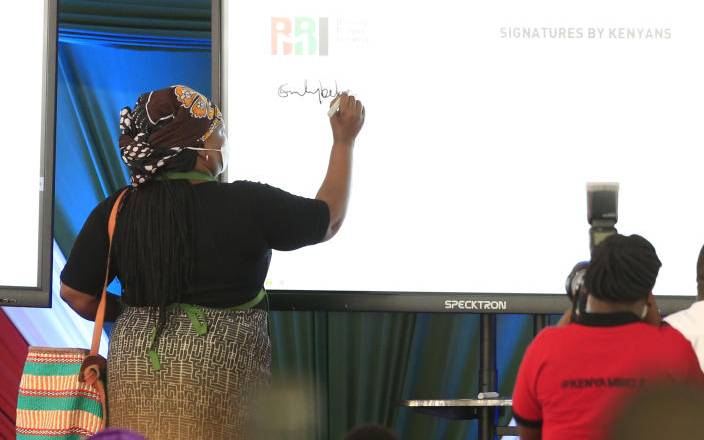×
The Standard e-Paper
Home To Bold Columnists

Emily Wanjiku, the first citizen to append a signature during the launch of the collection of signatures for the Building Bridges Initiative (BBI) at KICC in Nairobi on November 25, 2020. [Stafford Ondego, Standard]
To create 'people-driven' symbolism for the proposed law changes, the organisers of the BBI referendum signature launch picked on a Wanjiku to set the ball rolling.